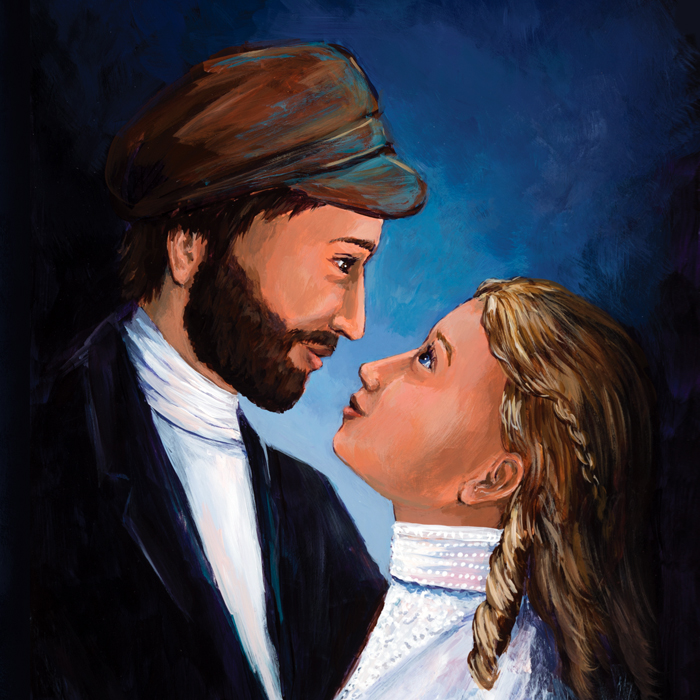
This Passover excerpt featuring “The Song of Songs” is offered in honor of the Yiddish author Jacob Dinezon as we continue our year-long centennial commemoration of his death in 1919. You can learn more about Jacob Dinezon here.
Once the maid had taken [Mirele’s mother] Brayndl off to bed, the real concert began. Mirele sang a song she learned from her father while sitting on his lap. Hershele answered with prayers, melodies, and playful ditties, no longer feeling like a desolate stranger. Mirele, who understood him, sang along, and together they performed a wonderful concert for the serving maid, who didn’t dare to clap and shout, “Bravo!”
Finally they sang “Chad Gadya”—and then there was nothing left to sing.
“I don’t want to leave the table,” Mirele said. “I’d rather talk and sing with you all night long—how could anyone sleep now?”
“Let’s sing the Song of Songs!” Hershele suggested. He quickly brought in a prayer book from the other room, and, mixing Hebrew with Yiddish, began chanting the verses.
Though he knew all the Psalms were holy and the Song of Songs was the holiest of all, he never entertained the notion that the Shulammite was anything more than a symbol for the people of Israel. Yet now he felt the words were made to measure for his Shulammite—Mirele. She came closer to see the words and pressed her burning cheek against his. He felt her body, her warmth, her heartbeats, and his heart pounded, too. Who could be as lovely or dear as she?
The holy words of the Song of Songs gave him courage as he recited, “Behold, you are beautiful, my beloved. Your eyes are like doves.” She opened her pretty eyes and looked at him with love, and as he looked back at her he sang, “Your lips are like a scarlet thread, your words are beautiful.”
As he continued to chant, he began feeling embarrassed by the words. He sang them quietly, but raised his voice when he reached the verse, “Come with me from Lebanon, my bride.” As he sang the melody, he forgot who and where he was. He seemed to be there in Lebanon. “Look from the top of Mount Amana, from the peaks of Senir and Hermon, from the lions’ dens, from the mountains of the leopards. You have ravished my heart, my sister, my bride!”
Mirele laid her head on his shoulder and gazed at him with such loving tenderness that his voice grew weaker. With all his strength he chanted, “You have taken my heart with one glance of your eye, with one bead of your beautiful necklace.”
Mirele sang softly, “Be a brother to me, Hershele,” as if she were saying, “If I came upon you in the middle of the street, I’d fall on your neck and kiss you, Hershele, and no one would scold me.”
“I swear to you, Mirele, you beautiful daughter of Jerusalem,” he wanted to say, “don’t further awaken the love that already burns within me. Waters cannot slake it; rivers cannot put out the flame!”
Yet, before another word was spoken, the serving maid returned. She told them the clock had already struck one, and the Christian hired to extinguish the candles had just arrived.
“Good night, Hershele,” Mirele whispered as she took his hand and pressed it tightly in hers.
“Good night, Mirele,” he answered, barely able to utter the words.
A few minutes later, when the maid finally left her bedroom, Mirele stood by the door and whispered again, “Good night, Hershele.”
